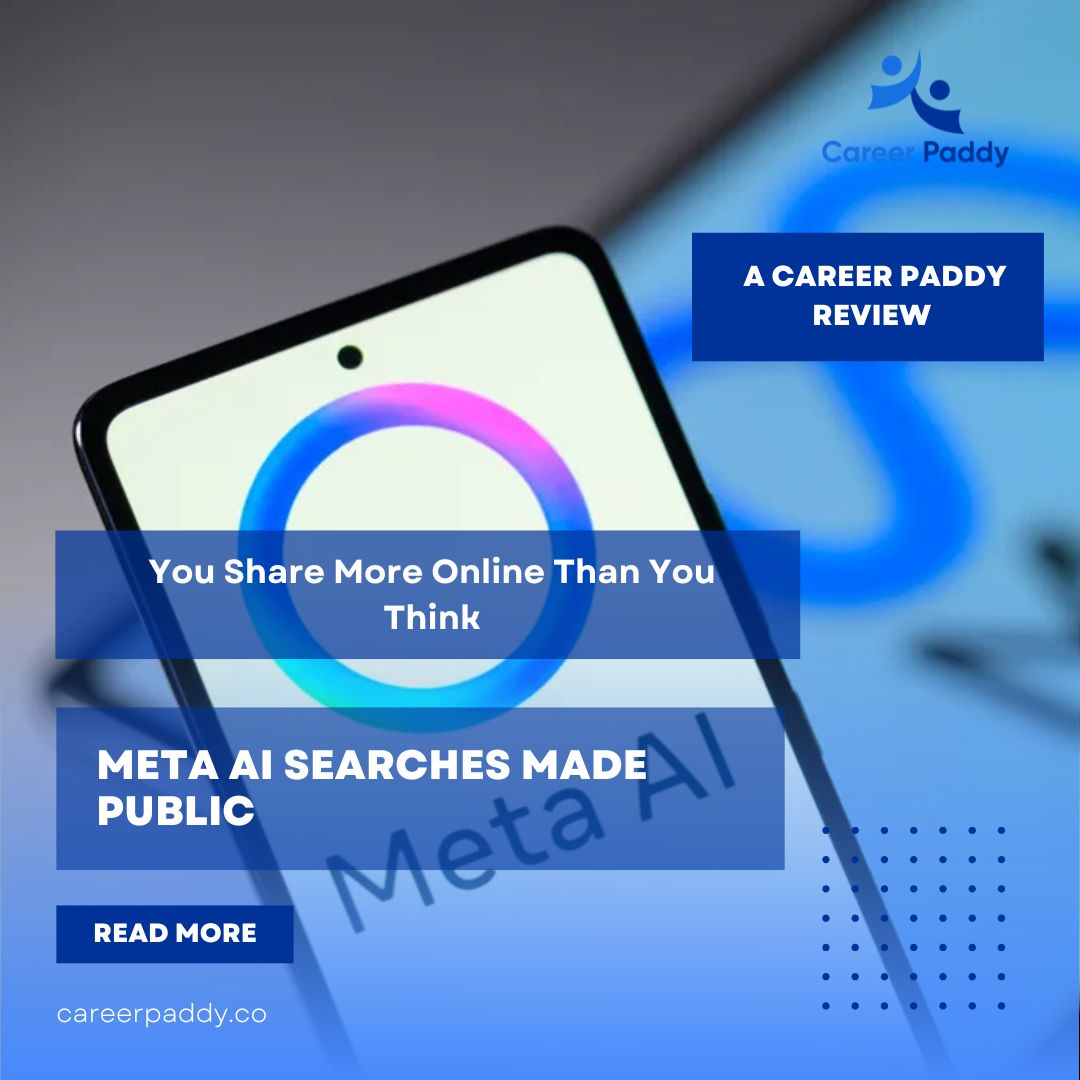You Share More Online Than You Think
After going through a BBC report titled Meta AI Searches Made Public , one question came to mind. Would you be okay if your private online searches became public?
That question became a reality for some users of Meta AI, according to a recent BBC investigation. Prompts entered into the AI tool and the generated responses are now surfacing in a public “Discover” feed. Even more concerning? These posts are often traceable to users’ social media accounts through profile pictures and usernames.
Meta says users choose what to post, and a warning appears before anything is shared. But internet safety experts, like Social Proof Security CEO Rachel Tobac, warn that the average user may not fully grasp the implications. Some have inadvertently exposed everything from academic dishonesty to intimate identity explorations.
This Is Not Just any Tech News, It’s a Wake-Up Call You
At CareerPaddy, we see this as more than just a technical News. It’s a powerful reminder of the importance of digital responsibility.
Because we know that behind every AI prompt is a real person. And behind every exposed search is a story that was never meant to be told publicly.
Think about the student who asked Meta AI for help with a math test, unaware that the conversation could be tied to their real name. Or the person courageously exploring their gender identity—only to have that vulnerable moment broadcast online.
These aren’t just breaches of privacy. They’re breaches of trust. Be Careful
Your Digital Caution Matters to Us – How can You Prevent This
🔐 Steps to Prevent Your Search History from Being Exposed by Meta
-
Turn Off Public Sharing
-
By default, Meta AI may prompt you to share queries publicly.
-
Before submitting any prompt, check if there’s an option to keep it private. Never click “Post” or “Share” if you’re unsure.
-
-
Review Privacy Settings in Your Meta AI Account
-
Go to the Meta AI settings (either on the app or web).
-
Look for “Discover Feed” or “Privacy Controls.”
-
Ensure your default is set to Private, not Public.
-
-
Avoid Entering Sensitive or Personal Information
-
Don’t type things like passwords, personal dilemmas, or identifiable data.
-
Treat Meta AI like a public forum unless you’re sure it’s private.
-
-
Revoke Previously Shared Posts
-
If you’ve accidentally shared prompts publicly, go to the “Discover” or “History” section.
-
Remove or delete any prompt you no longer want to be visible.
-
-
Use Anonymous Accounts for Sensitive Inquiries
-
If you must explore personal topics with AI, consider using a separate account not linked to your name or image.
-
-
Stay Updated on Meta’s AI Policies
-
Periodically read Meta AI’s terms and privacy policy for any changes.
-
Follow updates from reputable news sources that track tech platform policies.
-
Be the Person Who Thinks Before They Click
As AI becomes a bigger part of everyday life, we all face a choice: Do we lead our digital lives with caution and care, or do we leave it to chance?
At CareerPaddy, we encourage you to take ownership of your online habits.
You can visit CareerPaddy for more information that can guide you through your career
You can also access soft skills that can help you balance your career on the CareerPaddy app
Stay tuned for more analysis from CaeerPaddy
